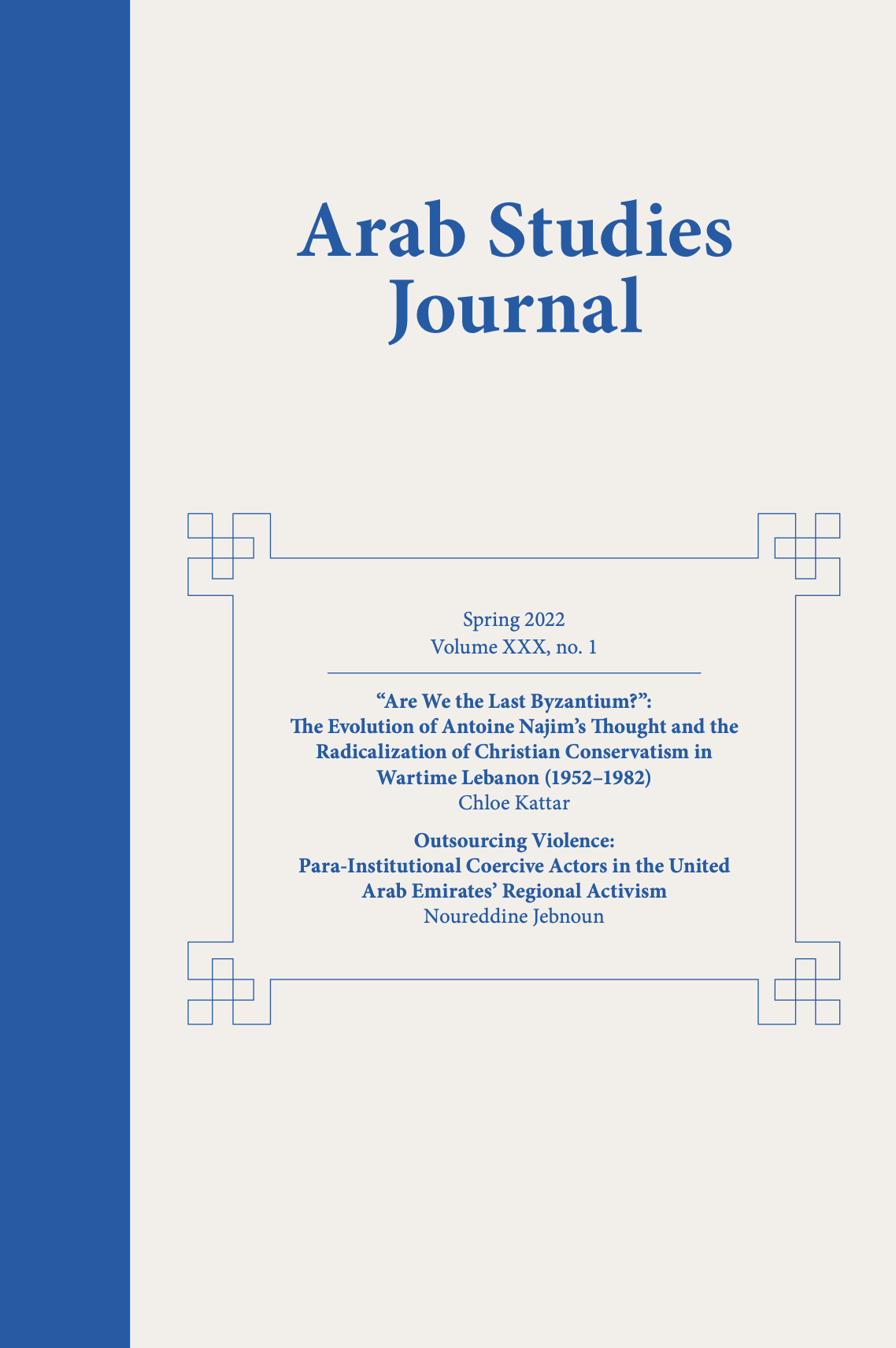Arab Studies Journal
Vol. XXX, No. 1
Spring 2022
This issue provides a diverse and critical foray into history, intellectual production, and institutional organization. Arab Studies Journal is privileged to feature two empirically grounded and historiographically challenging articles. Chloe Kattar offers a rare look at the development of Christian conservative thought in the context of the lead up to and first half of Lebanon’s fifteen-year civil war. Rather than featuring decades-old ideological differences about the organization of political power in Lebanon, Kattar reveals wartime intellectual production to have included new ideas that responded to the realities of the war and exigencies of its international context. She focuses in particular on one of the primary idealogues of (first) the Kata’ib Party and (then) the Lebanese Forces, tracing the intellectual itinerary of Antoine Najim as a key site of a broader reconfiguration of Christian conservative thought. Noureddine Jebnoun tracks the introduction of foreign recruits into coercive apparatuses of the Trucial States and the various transformations in their composition and role through the establishment and development of the United Arab Emirates. Utilizing a range of archival, media, and secondary sources, Jebnoun's article shows how the various logics of British imperialism, postindependence institution building, and shifting regional environments combined with the domestic and regional ambitions of UAE leaders to produce a labor shortage in the armed forces that was constantly (even if differently) addressed through the recruitment of foreign personnel at both the leadership and frontline levels.
Complementing these articles is another robust installment of our book reviews section. The works under review cover Algeria, Israel, Tunisia, Turkey, and the United States. They offer insight into a range of topics, including US foreign policy, Islamist institutional organization, moral ecology, and training in the decorative arts.
TABLE OF CONTENTS
Articles
“Are We the Last Byzantium?”:
The Evolution of Antoine Najim’s Thought and the Radicalization of Christian Conservatism in Wartime Lebanon (1952–1982)
Chloe Kattar
Outsourcing Violence: Para-Institutional Coercive Actors in
the United Arab Emirates’ Regional Activism
Noureddine Jebnoun
Reviews
Decorative Arts of the Tunisian École: Fabrications of Modernism, Gender, and Power by Jessica Gerschultz
Reviewed by Natasha Marie Llorens
Islam, réforme et colonisation: une histoire de l'ibadisme en Algérie, 1882–1962 by Augustin Jomier
Reviewed by Benjamin Claude Brower
L’Algérie des oulémas: une histoire de l’Algérie contemporaine (1931–1991) by Charlotte Courreye
Reviewed by Sara Rahnama
How to Make a Wetland: Water and Moral Ecology in Turkey by Caterina Scaramelli
Reviewed by Ekin Kurtiç
Israel’s Armor: The Israel Lobby and the First Generation of the Palestine Conflict by Walter L. Hixson
Reviewed by Lawrence Davidson


